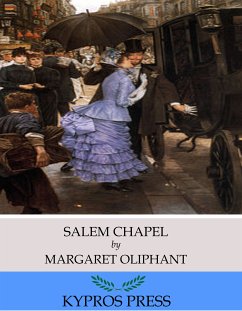
Miss Bretherton (eBook, ePUB)
Enriched edition. Love, Class, and Independence: A Victorian Tale of Society and Struggle
Kommentar: Howard, Ariana / Redaktion: Good Press

PAYBACK Punkte
0 °P sammeln!
"Miss Bretherton" by Humphry Mrs. Ward is a poignant exploration of the complexities of female identity within the confines of Victorian society. The narrative follows the life of its eponymous heroine, as she navigates the turbulent waters of love, ambition, and societal expectation. Ward's deft narrative style intertwines vivid characterizations with the rich psychological depth, reflecting the tensions between tradition and modernity. The novel distinctly captures the cultural milieu of its time, highlighting the challenges women faced in asserting their independence while grappling with fa...
"Miss Bretherton" by Humphry Mrs. Ward is a poignant exploration of the complexities of female identity within the confines of Victorian society. The narrative follows the life of its eponymous heroine, as she navigates the turbulent waters of love, ambition, and societal expectation. Ward's deft narrative style intertwines vivid characterizations with the rich psychological depth, reflecting the tensions between tradition and modernity. The novel distinctly captures the cultural milieu of its time, highlighting the challenges women faced in asserting their independence while grappling with familial and social obligations. Humphry Mrs. Ward, a pioneering figure in early 20th-century literature, was known for her commitment to social issues, particularly those concerning women's rights and roles. Her background in literature and her own experiences in navigating a patriarchal society inspired her to create powerful female protagonists who defy conventions. Ward's literary career was marked by her interest in the evolving position of women, which is vividly illustrated through the character of Miss Bretherton, a woman whose aspirations challenge the norms of her generation. This engaging and insightful narrative is highly recommended for readers interested in feminist literature and historical context. "Miss Bretherton" not only offers a richly textured portrayal of a woman's struggle for agency but also serves as a reflection on the broader societal transformations of the era. Ward's intricate storytelling and profound character studies make this novel a compelling read for anyone seeking to understand the nuanced dynamics of gender and power in literature. In this enriched edition, we have carefully created added value for your reading experience: - A succinct Introduction situates the work's timeless appeal and themes. - The Synopsis outlines the central plot, highlighting key developments without spoiling critical twists. - A detailed Historical Context immerses you in the era's events and influences that shaped the writing. - A thorough Analysis dissects symbols, motifs, and character arcs to unearth underlying meanings. - Reflection questions prompt you to engage personally with the work's messages, connecting them to modern life. - Hand-picked Memorable Quotes shine a spotlight on moments of literary brilliance. - Interactive footnotes clarify unusual references, historical allusions, and archaic phrases for an effortless, more informed read.
Dieser Download kann aus rechtlichen Gründen nur mit Rechnungsadresse in A, B, BG, CY, CZ, D, DK, EW, E, FIN, F, GR, H, IRL, I, LT, L, LR, M, NL, PL, P, R, S, SLO, SK ausgeliefert werden.













